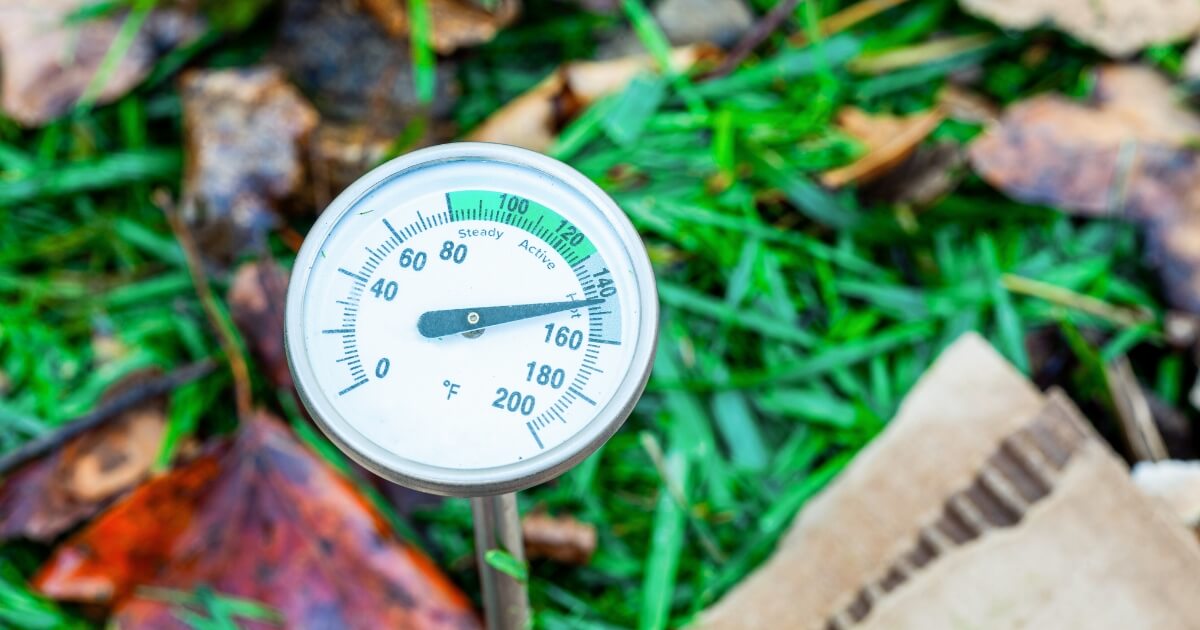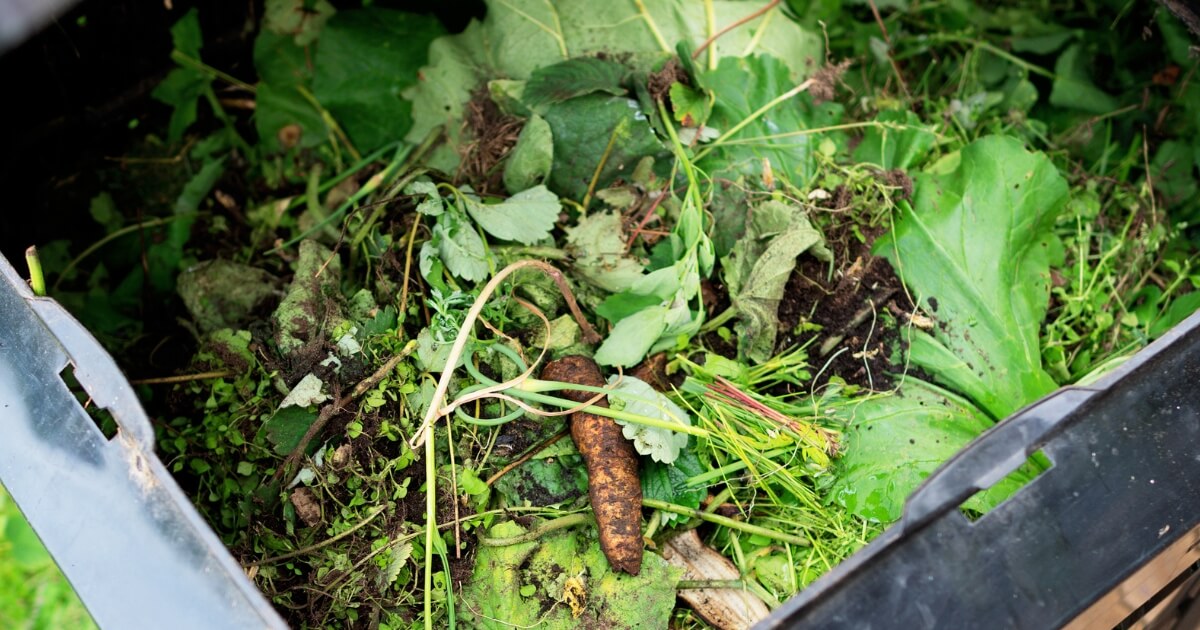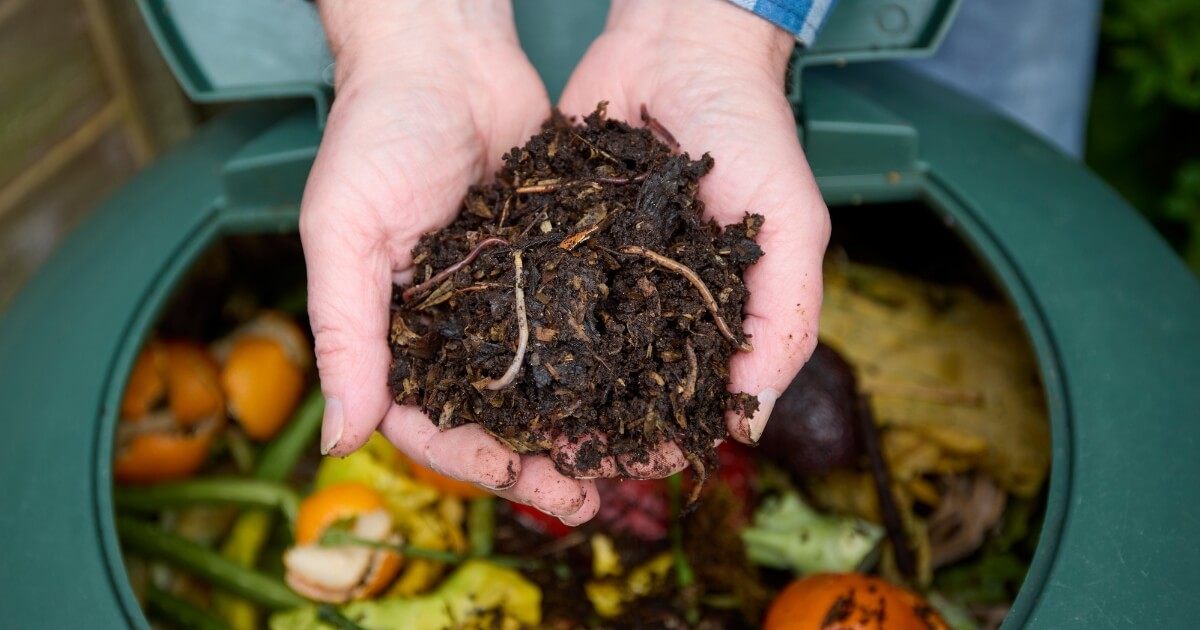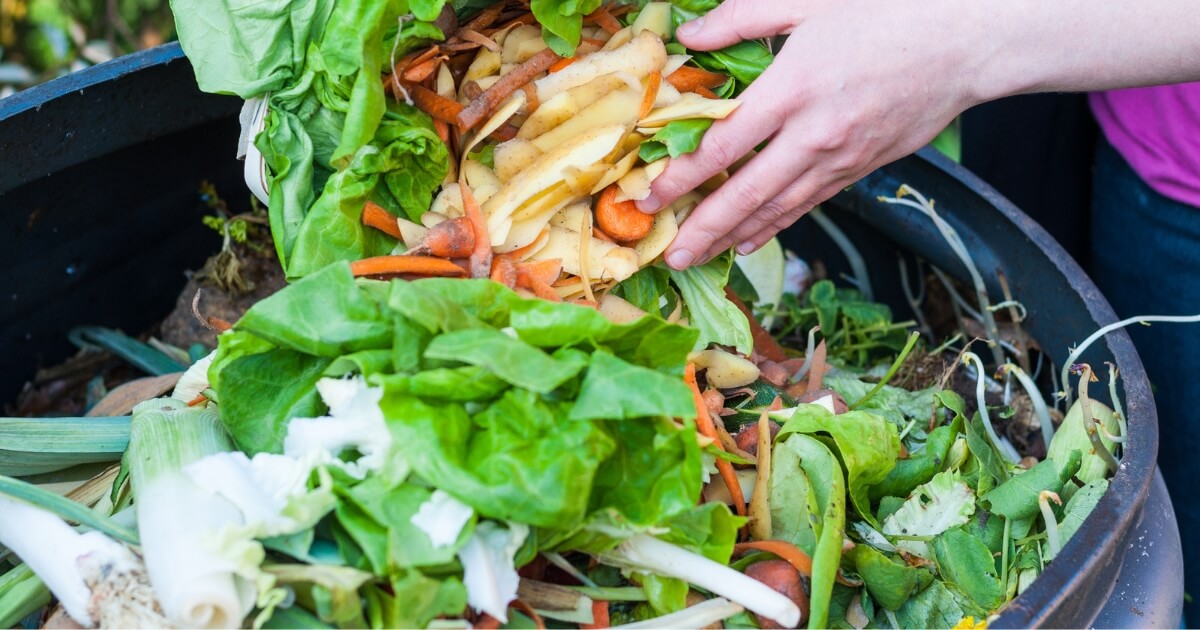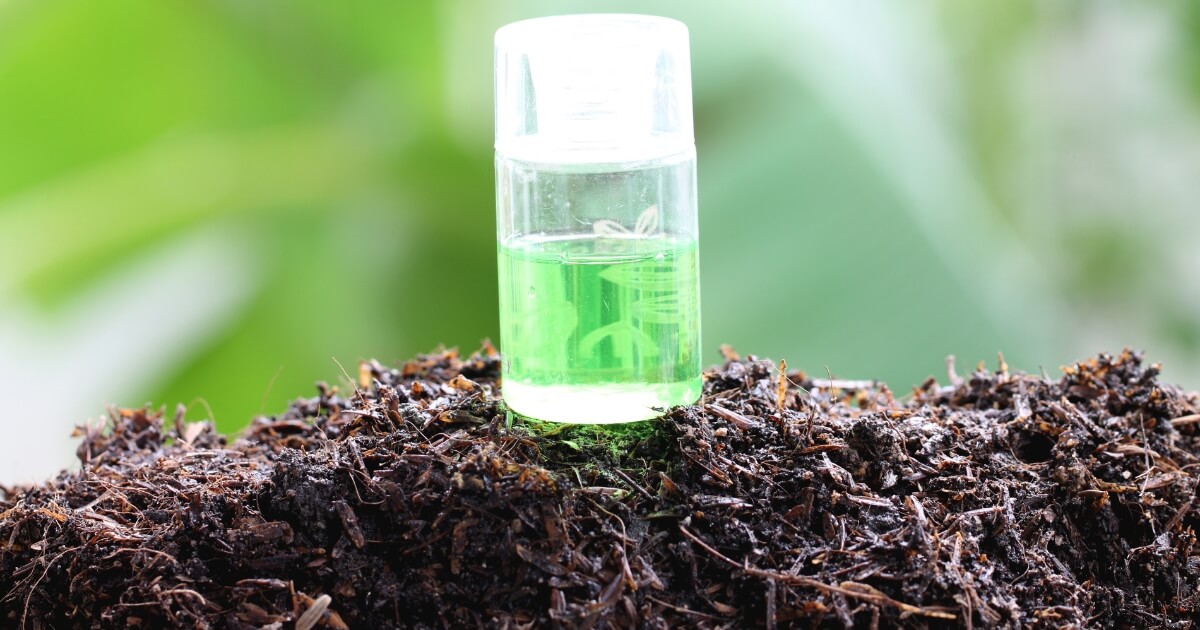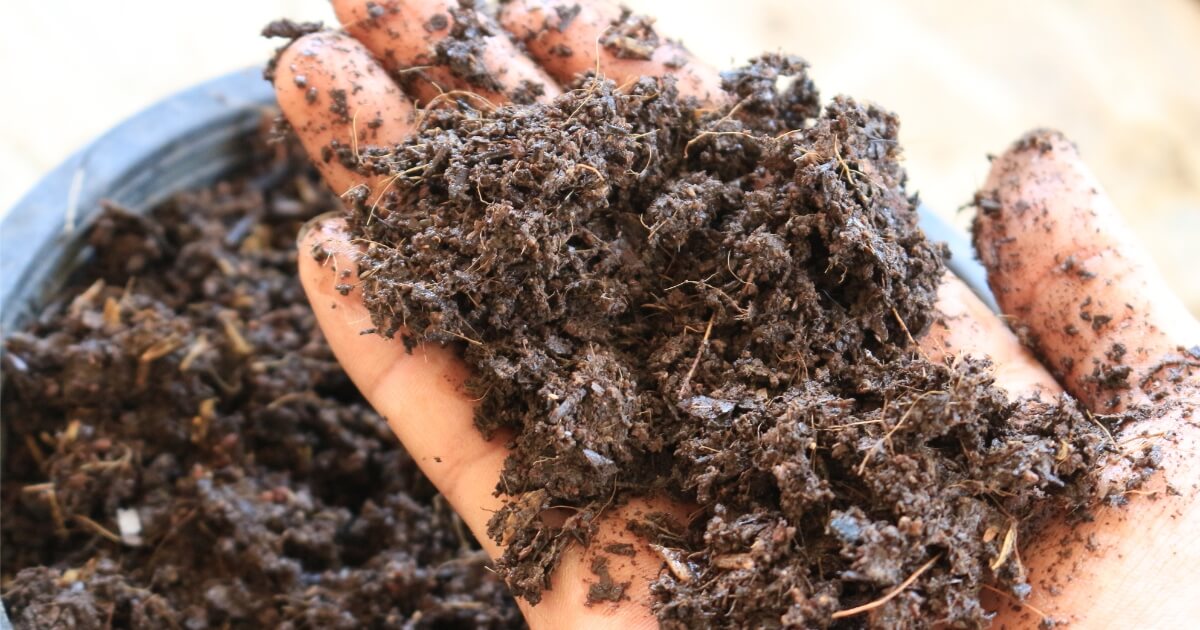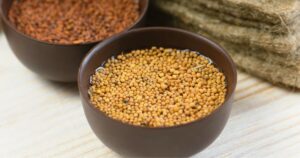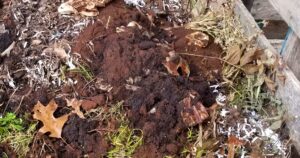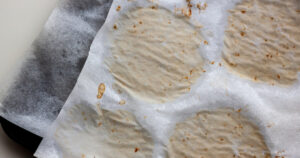A steaming cup of coffee is a morning routine for millions of people, which begs the question, “Is coffee and coffee filters compostable?”
The answer to this question is yes! As long as you know the best way to compost coffee.
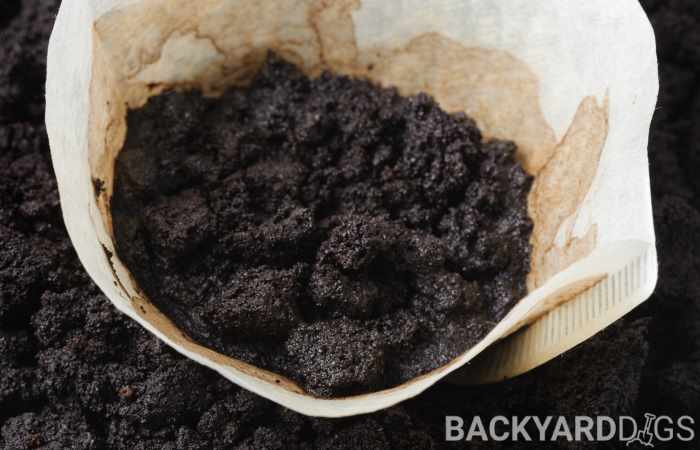
To make it simple, I wrote this guide where you can quickly learn the pros and cons of composting coffee and coffee filters. I also discuss how long it takes for coffee and filters to decompose and how to compost them successfully.
Coffee in compost can be beneficial, so let’s get into the details right away!
Can Coffee Be Composted?
Yes, coffee is a wonderful addition to composters that most households create daily.
Having a convenient way to dispose and recycle the coffee keeps it out of landfills and eventually becomes a rich material that increases the health and beauty of your plants.
There are a few things to be aware of when composting coffee, so let’s take a look at the pros and cons.
Pros:
- You can compost both fresh and used coffee grounds
- Brewed coffee grounds are nearly pH neutral and make great fertilizer
- Unbrewed coffee grounds are acidic, perfect for use around azaleas, blueberries, and other acid-loving plants
- Grounds provide an excellent nitrogen source
- Reduces kitchen waste going to landfills
- Coffee help microorganisms in the soil thrive
- Grounds in soil attract earthworms and deter slugs
Related | How To Make Soil Acidic
Cons:
- Coffee ground particles tend to clump together and prevent water absorption when used too thickly as mulch
- Caffeine remnants can stunt seedling growth
- Must not allow dogs to eat the grounds from the compost pile as caffeine is poisonous in large quantities
- Must take care to balance the coffee grounds with enough carbon-based material
Can Coffee Filters Be Composted?
Yes, both bleached and unbleached coffee filters can go into your composter, but they do have the following pros and cons to consider.
Pros:
- Filter material is thin and decomposes quickly (especially when wet)
- Worms digest filter material with ease
- Unbleached filters leave no chemical trace behind
Cons:
- Filters need to stay moist to break down fast
- Tearing up filters into small pieces can be messy
- Chlorine-bleached filters may leave behind trace amounts of harmful chemicals
If you prefer using white filters in your coffee maker, look for a brand that states on the label that they use an oxygen-bleach method to lighten the material.
This method of bleaching has a less harmful impact on the environment during the manufacturing process as opposed to standard chlorine bleach.
How Long Does It Take For Coffee And Filters To Decompose?
Expect it to take anywhere from two weeks to up to eight months for coffee filters to decompose inside your composter.
Coffee grounds are so small and dirt-like in appearance that it’s hard to determine when they fully decompose.
Many gardeners toss coffee dregs and grounds directly into planter beds and work them in with a rake when it’s convenient.
Related | When Is Compost Ready?
Worm Composter
A vermicomposter is the quickest way to break down the filters, especially if you tear them up a bit while they are still wet and place them inside the bin with the grounds.
Related | Best Worm Composter
While many people attest their voracious worms destroy a filter full of old coffee grounds in less than a week, I think two weeks is a safe expectation.
Related | Red Wigglers vs Earthworms
Compost Bin
Compost bins and tumblers are next up for speediness when it comes to coffee and filter decomposition since people tend to turn them more often.
The sealed container keeps moisture at optimal levels to completely break down the coffee filter and grounds in anywhere from one to four months.
Related | Best Indoor Compost Bin
Outdoor Compost Pile
Open outdoor compost piles will take the longest if you are not careful to keep the filters inside the pile where moisture and heat help break them down much quicker.
Depending on how well you tend to your compost pile, expect filters to decompose in anywhere from four to eight months.
How To Compost Coffee And Coffee Filters
The first step in composting coffee and coffee filters is to understand that used coffee grounds are a green ingredient and you need to balance that material with the appropriate amount of brown compost material like leaves.
Keeping a ratio of 30 parts carbon to one part nitrogen helps microorganisms within the pile thrive, keeps the internal temperature high, and reduces the chance odors become offensive.
You can compost used coffee grounds either directly into the soil around plants or into your vermicomposter, compost bin, or pile.
Don’t toss coffee filters onto open ground, since exposing the papery material to air will quickly dry it out.
The filters will take a long time to break down under this condition, and in the interim, your yard will look very untidy.
Direct Soil Introduction
Each day I often fling the grounds out of my coffee filter over the soil in my garden or nearby planter bed on my way to the compost pile, where I deposit my other kitchen waste along with the coffee filter.
By flinging the grounds over a different area each day, it keeps them from collecting in one spot in concentrate, which could become detrimental to growing plants.
If you do dump coffee grounds into a pile, use a garden claw to incorporate them into the ground as deep and as evenly as possible.
Mixing the coffee with the soil helps not to overwhelm a plant’s root system that’s growing well in a particular soil balance.
Adding To A Compost Pile, Bin, Or Vermicomposter
When adding coffee grounds into any composter, spread them out as much as possible over the surface, so the grounds incorporate quickly into the surrounding “brown” material when you mix it.
When it comes to coffee filters, I like to tear them up into little pieces after I toss off the grounds, but it can be messy. You can also cut them up with scissors. The smaller the bits, the faster they will decompose.
Some people do toss their filters in the composter whole, which seems to be fine if they are still wet, and you bury it completely.
A dry coffee filter can be very stubborn when it comes to decomposing, so either douse any dry filter material you see with water or bury it inside the compost because they can blow off in the wind otherwise.
Related | Mold In Compost
I find that the constant addition of coffee grounds and filters doesn’t upset the balance of my pile as long as I keep plenty of leaves in the mix.
I rarely add old grounds I didn’t brew into my compost, so I don’t have concerns my finished material will be too acidic for my plants.
I do collect and pour the remnants of liquid coffee around my azalea bushes now and again, which is a safe, direct acid boost and better than just pouring it down the drain.
In Summary
Recycling coffee and filters is one of the easiest ways to lessen kitchen waste and provide ingredients for composting your plants will love.
I hope this guide dispels any myths you may hear about using coffee or coffee filters for composting, and you try incorporating them into your gardening routine.
Give composting of coffee grounds and filters a try, it’s not much work, and your plants will love you for it!
